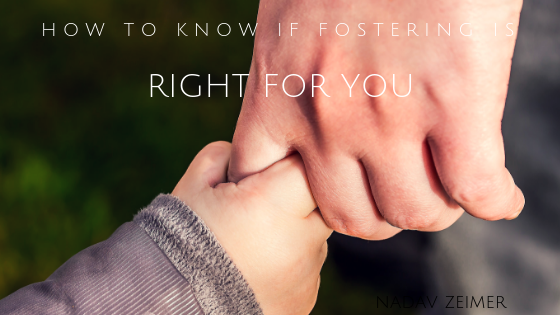If you’ve been feeling that becoming a foster parent is the path you want to take, you may feel as though it’s something you want to dive in right away. While it’s great you feel compelled to help others; it’s first important to determine if fostering is right for you. It’s a hard role and not something everyone is fit for. Before deciding to become a foster parent, first, ask yourself the following four questions.
Do you have a strong support system?
To be a foster parent, you’ll need a lot of support. You may have a child that has behavioral issues or is reluctant to join your home. You’ll have to deal with a lot of difficult situations, and it’ll be hard to get through if you don’t have a support system in place. Having a close group of people you can vent to and who will understand and not judge you is vital to successfully fostering. Cultivate your own support group before taking on becoming a foster parent.
How does your family feel about it?
If you already have children of your own, have you asked them how they feel about bringing new children into the home? Fostering affects your children just as much as it affects you. They’ll also form bonds with their foster siblings and be upset when they leave. If the foster child has some behavioral issues, your child may be the target of some of those issues. Before agreeing to be a foster parent, there needs to be a discussion had with every member of your family to determine their feelings.
Can you work as part of a team?
As a foster parent, you have to work with a whole team of people to parent your child. This includes the birth parents, the caseworker and the state. The birth parents of your foster child have final say over many decisions involving the child, and you have to be able to respect that, even if it goes against what you think is best for the child. You also have to be comfortable with a caseworker coming into your home, sometimes every month and work on the plan they’ve set for the child.
Do you have the patience?
As a foster parent, you have to give and give, and sometimes don’t get much in return. A lot of children in foster care have dealt with neglect and abuse, which often causes behavioral issues. You have to continually adjust your schedule with little to no notice to attend court hearings or visit with birth families. While the situation will at time test you, you need to be able to stay patient and level-headed through it all.

